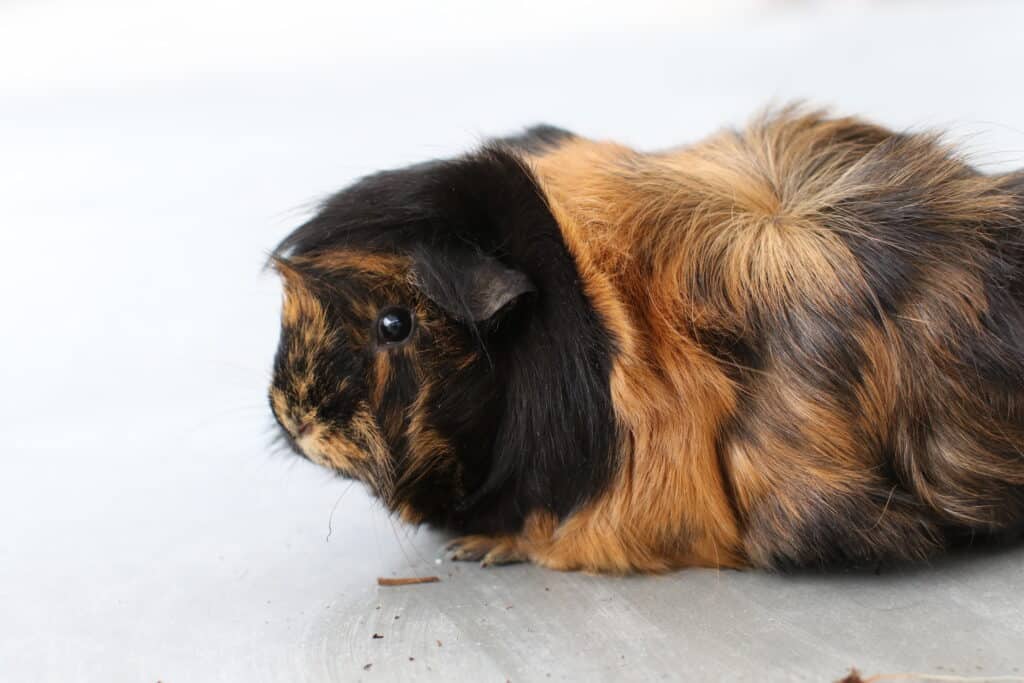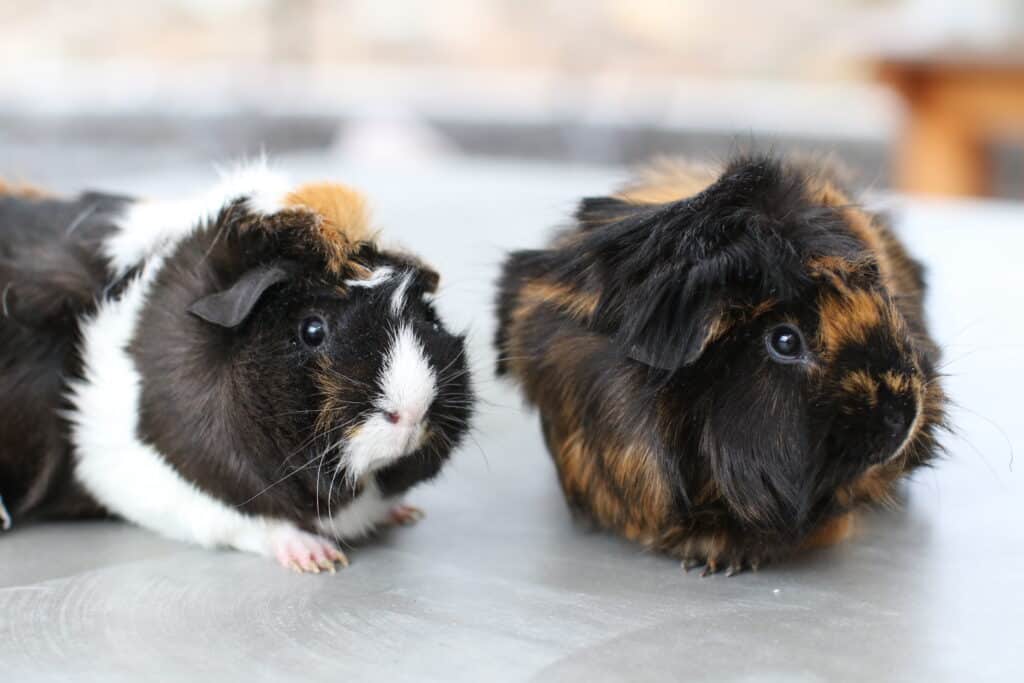As an Amazon Associate we earn from qualifying purchases.
Can guinea pigs eat dandelions? Dandelions are plants that many people use for medicinal purposes, although they may be toxic to guinea pigs. Some individuals consider dandelions a nuisance and remove or poison them with chemicals such as pesticides or weed killers.
What Are Dandelions?
Dandelions are flowering plants that belong to the Asteraceae family, including daisies, sunflowers, and chrysanthemums.

Dandelions grow in temperate climates throughout the world and are considered a weed in many places. The plant is often regarded as unwelcome in yards and gardens because it can spread rapidly and be difficult to remove.
Dandelions are a source of food for many animals, including guinea pigs. The leaves, flowers, and stems of the plant are edible and contain various nutrients.
Dandelions are high in fiber and vitamin C, essential for guinea pigs.
What Nutrients Do Dandelions Contain?
Dandelions are a good source of vitamins A, C, and K and minerals such as iron and calcium. The greens are also a rich source of fiber. One cup of chopped dandelion greens contains:
- Vitamin A: 535 IU
- Vitamin C: 22 mg
- Vitamin K: 48 mcg
- Iron: 1.5 mg
- Calcium: 102 mg
- Fiber: 3 grams
- Protein: 2 grams
- Carbs: 7 grams
Dandelions also contain small amounts of B vitamins, phosphorus, potassium, and magnesium.
Can Guinea Pigs Eat Dandelions?
Yes, guinea pigs can eat dandelions. This includes the leaves, stems, flowers, and even the root. The plant is an excellent source of nutrients and antioxidants that can benefit guinea pigs’ health.
The dandelion root is beneficial. In minor or moderate doses, it can cure an empty stomach, bellyache, gallstones, and other ailments. Guinea pigs may benefit from dandelions if eaten in moderation.
Helps Maintain A Healthy Weight
Dandelions are low in calories but high in fiber, making them an ideal food for guinea pigs to maintain a healthy weight. Fiber is an indigestible carb that helps promote feelings of fullness and may help reduce the number of calories guinea pig consumes overall.
Aids Digestion
The fiber in dandelions can also aid digestion by helping to add bulk to guinea pig’s stool and promoting regularity. Additionally, the plant’s high water content can help keep guinea pigs hydrated and prevent constipation.
Supports immune health
Dandelions are a good source of vitamin C for guinea pigs, which is essential for a healthy immune system. Vitamin C helps the body produce white blood cells, which fight off infection.
Guinea pigs can’t synthesize their vitamin C and must get it from their diet. While dandelions aren’t as high in vitamin C as other fruits and vegetables, they’re still a good nutrient source and can help support the guinea pig’s immune systems.
Stronger Bones
Dandelions are also a good source of calcium, which is essential for strong bones. Calcium helps build and maintain bone mass, and it’s necessary for many other processes in the body, including muscle contraction and nerve function.
While guinea pigs need calcium for strong bones, too much can be harmful. Excess calcium can lead to kidney stones and other health problems. Therefore, it’s essential to feed dandelions to guinea pigs in moderation.
Can Dandelions Kill Guinea Pigs?
No, dandelions will not kill guinea pigs. The plant is quite nutritious and can provide many health benefits. However, dandelions can be toxic to guinea pigs if consumed in large quantities or from a polluted environment.
It’s essential only to give guinea pig dandelions that have been washed thoroughly and come from a safe area.
Are There Any Risks?
While dandelions are safe for guinea pigs in moderation, there are a few risks to consider. First, dandelions may contain harmful toxins if they come from an area that has been treated with pesticides or other chemicals. Second, dandelions can cause digestive upset if consumed in large quantities.
You might notice that the guinea pig’s urine becomes orange or even crimson after eating dandelions.
Other risks include:
- Dandelions can cause digestive upset if they are consumed in large quantities.
- The plant’s high water content can make it difficult for your guinea pig to stay hydrated.
- Dandelions may alter the color of your guinea pig’s urine.
- Dandelions may cause gas or bloat.

How to Feed Dandelions to Guinea Pigs
If you want to give dandelions to your guinea pigs, it’s essential to do so in moderation. Start by offering a small number of dandelion leaves and flowers and see how your guinea pigs react. If they seem to enjoy it and don’t have any adverse reactions, you can slowly increase the amount you feed them.
As a general rule of thumb, dandelions should make up no more than 10% of your guinea pig’s diet. If your guinea pig eats 1 cup of hay per day, they should only have about two tablespoons of dandelions.
When feeding dandelions to your guinea pigs, it’s essential to wash them thoroughly. This will help remove any toxins or chemicals present in the plant.
Are Dandelions Safe For Baby Guinea Pigs?
Yes, baby guinea pigs can eat dandelions. This includes the leaves, stems, flowers, and even the root. The plant is an excellent source of nutrients and antioxidants that can benefit your guinea pig’s health. However, the quantity must be controlled.
Are Dandelion Flowers Eatable?
Yes, guinea pigs can eat dandelion flowers. Flowers are a good source of vitamins and minerals, and they can provide numerous health benefits. Just be sure to wash them thoroughly to remove any toxins or chemicals.
Are Dandelion Roots Eatable?
Yes, guinea pigs can eat dandelion roots. The roots are a good source of fiber, vitamins, and minerals. Just be sure to wash them thoroughly to remove any toxins or chemicals.
Do Guinea Pigs Like Dandelions?
Some guinea pigs like dandelions, while others don’t care for them. If your guinea pig is picky, you can try offering the plant in different forms, such as chopped up or shredded. To make a more palatable dish, you can mix dandelions with other fruits and vegetables.
Final Thoughts
Dandelions are safe for guinea pigs and can provide many health benefits. Just be sure to wash them thoroughly and feed them in moderation. If you have any concerns, talk to your veterinarian.